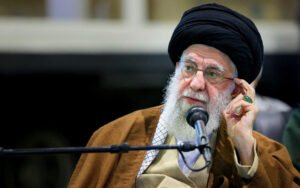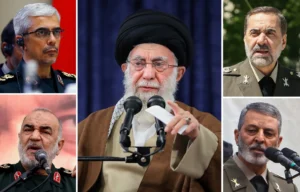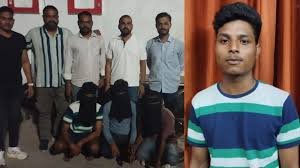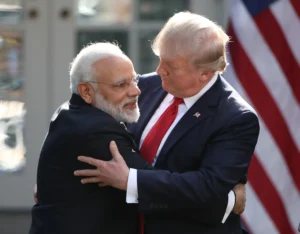

Evolving Dynamics: Ayatollah Khamenei’s Recent Stance on International Relations

Supreme Leader of Iran
Role = Second Supreme Leader of Iran since 1989; previously served as the third President of Iran from 1981 to 1989.
Birth = Born on 19 April 1939 in Mashhad, Khorasan, Imperial State of Iran
Political Authority = As Supreme Leader, holds the most powerful political authority in the Islamic Republic of Iran, controlling the executive, legislative, and judicial branches, the military, and media
Notable Incident = Target of an attempted assassination in June 1981 that paralyzed his right arm
Education = Studied at Qom Seminary, Khorasan Seminary, and Najaf Seminary
Notable Idea = Issued a fatwa against the production, stockpiling, and use of nuclear weapons in 2003.
Recent news regarding Ayatollah Ali Khamenei, Iran’s Supreme Leader, has centered around his controversial remarks about the plight of Muslims in various regions, including India.
- Khamenei’s Comments on Muslims in India: In a recent address, Khamenei equated the suffering of Muslims in India with those in Gaza and Myanmar. He stated that true Muslims cannot ignore the struggles faced by their fellow believers globally, emphasizing a shared Islamic identity. This statement was made during a gathering of clerics in Tehran and was part of a broader dialogue during Islamic Unity Week.
- India’s Strong Response: The comments prompted a swift backlash from India. The Ministry of External Affairs labeled Khamenei’s remarks as “misinformed and unacceptable,” urging countries to reflect on their own records regarding minority rights before commenting on others. This response underscores the sensitivity surrounding India’s treatment of its Muslim population and its diplomatic relations with Iran.
- Context of Tensions: Khamenei’s remarks come amid rising tensions between Iran and Israel, with implications for India’s foreign policy as it seeks to balance relationships with both nations. Historically, India and Iran have maintained strong ties, exemplified by joint projects like the Chabahar port development.
These developments highlight the ongoing complexities in regional politics and the interplay between domestic issues and international relations.
supreme leader ayatollah ali khamenei
- Khamenei’s Comments on Indian Muslims: In a statement made during Islamic Unity Week, Khamenei compared the suffering of Muslims in India to that of those in Gaza and Myanmar. He asserted that Muslims cannot ignore the plight of their fellow believers worldwide, emphasizing a shared Islamic identity. His comments were made on social media, where he stated, “We cannot consider ourselves to be Muslims if we are oblivious to the suffering that a Muslim is enduring in #Myanmar, #Gaza, #India”.
- India’s Strong Reaction: Following Khamenei’s remarks, India’s Ministry of External Affairs issued a sharp condemnation, labeling his comments as “misinformed and unacceptable.” The spokesperson emphasized that countries should reflect on their own records regarding minority rights before criticizing others. This response highlights the sensitivity surrounding India’s treatment of its Muslim population and its diplomatic relations with Iran.
- Context of Tensions: The timing of Khamenei’s comments is significant given the ongoing geopolitical tensions in the region, particularly between Iran and Israel. India has traditionally maintained a balanced relationship with both nations, which complicates its diplomatic stance following Khamenei’s statements Recent news concerning Ayatollah Ali Khamenei, Iran’s Supreme Leader, has focused on his controversial remarks regarding the treatment of Muslims in India, which have sparked diplomatic tensions.
These developments illustrate the delicate nature of India-Iran relations and the potential impact of Khamenei’s remarks on future diplomatic engagements.
Discover more from
Subscribe to get the latest posts sent to your email.










